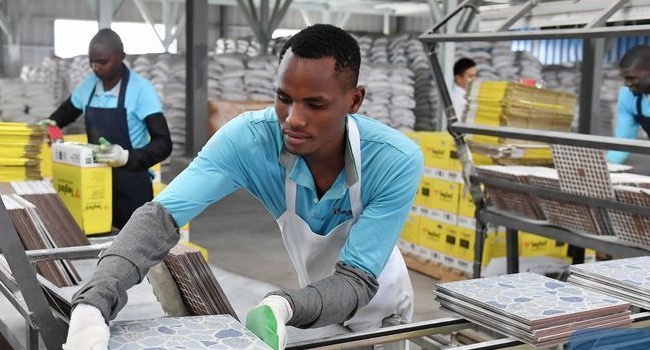Business
Nigeria’s manufacturing sector shrinks for fourth month in a row –CBN

Nigeria’s manufacturing Purchasing Manger Index (PMI), which measures the general direction of economic trends in the manufacturing sector of the economy, stood at 48.5 index points in August, signalling the fourth consecutive month of contraction, the Central Bank of Nigeria (CBN) said on Wednesday.
A PMI above 50 usually represents an expansion when compared with the previous month while a PMI below 50 means a contraction. A reading at 50 implies no change.
Manufacturing in Africa’s biggest economy has been facing a double whammy of supply chain disruption occasioned by the coronavirus outbreak and acute shortage of foreign exchange availability, which has worsened the woes of a sector long plagued by arrested development.
The CBN Purchasing Managers’ Index Report for August issued on Wednesday showed that 6 sectors of the 14 subsectors surveyed in the manufacturing industry recorded growth. They comprised non-metallic mineral products; cement; plastics & rubber products; transportation equipment; chemical & pharmaceutical products and textile, apparel, leather & footwear.
Read also: Nigerian manufacturing sector shrinks for the third straight month in July –CBN
On the other hand, those that posted contraction included printing & related support activities; electrical equipment; petroleum & coal products; primary metal; furniture & related products; paper products; food, beverage & tobacco products; and fabricated metal products.
In the non-manufacturing sector, the PMI stood at 44.7 points, indicating the fifth of consecutive contractions. Here, 16 sub-sectors out of the 17 surveyed witnessed shrinking in the month under review.
The utilities subsector, the only one that did not contract, remained at the same spot, neither progressing nor drawing back.
The 16 sub-sectors that contracted were repair, maintenance/washing of motor vehicles; real estate rental & leasing; professional, scientific, & technical services; management of companies; electricity, gas, steam & air conditioning supply; educational services; health care & social assistance; finance & insurance; construction; arts, entertainment & recreation; transportation & warehousing; accommodation & food services; water supply, sewage & waste management; wholesale/retail trade; agriculture and Information & communication.
This week, the statistics office reported that the Nigerian economy contracted by -6.10% year on year in real terms in the second quarter of this year.
The International Monetary Fund has projected Nigeria’s GDP will fall by 5.4% this year but government believes it will shrink by 8.9%, raising fears that the country’s second recession in 4 years is round the corner.
Join the conversation
Support Ripples Nigeria, hold up solutions journalism
Balanced, fearless journalism driven by data comes at huge financial costs.
As a media platform, we hold leadership accountable and will not trade the right to press freedom and free speech for a piece of cake.
If you like what we do, and are ready to uphold solutions journalism, kindly donate to the Ripples Nigeria cause.
Your support would help to ensure that citizens and institutions continue to have free access to credible and reliable information for societal development.
























